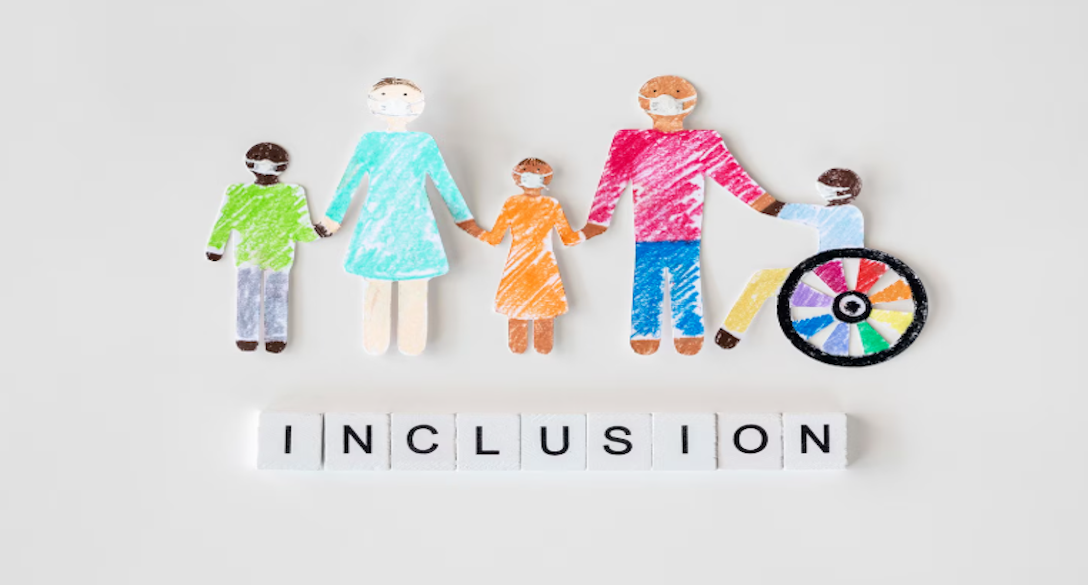Connecting You to Community: The Role of Your NDIS Disability Services Provider in Inclusion

(Source)
When discussing disability services, it is tempting to focus on the practical aspects, such as daily routines, mobility aids, and support workers. However, after all that, there is another thing, just as important, and sometimes even difficult to describe: a connection.
Becoming part of a community is not a luxury for people living with disability; it is a key ingredient to their wellbeing, confidence and opportunity. It is here that a reputable NDIS disability provider can make a difference. These providers are more than just support providers; they make people feel noticed, appreciated, and truly integrated into their usual lives.
Today, we will discuss the evolving role of NDIS providers and how they can facilitate meaningful inclusion, making community connection a key component of every support plan.
What Makes Community Inclusion So Important
Before we get into the role of the provider, however, we should briefly mention why the inclusion of the community is so essential:
- Liberating Isolation: Sometimes, disability is associated with isolation. Inclusion is one means of erasing these boundaries, and it brings the opportunity for genuine interaction and friendship.
- Mental Wellbeing: A sense of belonging, being appreciated, and feeling useful leads to a much better mental condition and low chances of loneliness, anxiety, and depression.
- Skill Development: Participating in community activities inherently develops essential life skills, including communication, problem-solving, navigating the streets, and managing finances.
- Personal Growth & Purpose: Engagement enables individuals to pursue their hobbies, interests, and even work or volunteer, which leads to greater self-meaning and self-accomplishment.
- Breaking the Stereotypes: By interactively engaging in their communities, people with disabilities are seen in their real settings, and this destroys myths and leads to a more understanding, accepting and more equal society.
The Changing Roles of NDIS Providers
By the time the National Disability Insurance Scheme (NDIS) was introduced, this became a significant turning point in how issues of disability support were ever addressed in Australia. The NDIS models enable people to decide what works best for their lifestyle and government support.
However, that independence necessitates the proper type of direction.
An NDIS disability services provider does more than simply give fixed hours of care or click boxes. A partner that listens, advocates, and walks with you as you strive for increased independence and connection is a truly supportive provider.
The top providers support inclusion in the following ways.
1. Making Your Support Fit Your Life
Being heard is the first step towards inclusion. A good NDIS disability services provider will take the time to get to know you and understand what is most important to you, including your interests, goals, strengths, and any barriers you may face.
Your provider should help you reach your goals, whether they are to join a dance class, get a job, or just meet new people.
That could mean:
1) Helping you get to social events or appointments safely
2) Helping you talk if you can't speak or have a neurodivergent brain
3) Promoting use of regular services, not just those for people with disabilities
4) Learning how to handle any situation on your terms by building life skills
5) It's not about doing things for you; it's about helping you do things your way.
2. Overcoming Participation Barriers
Unfortunately, not all persons with disabilities have access to community life easily. Some of these barriers may be physical (such as inaccessible locations), attitudinal (such as stigma or unrealistic expectations), and practical (such as transportation or cost).
An excellent NDIS disability services provider should take steps to recognise and minimise barriers. That may include:
1) Communicating with local establishments so that they are accessible
2) Education of inclusion in society
3) Seeking innovative ideas to enable you to participate in what is important to you
They do not only act as support systems, but also as door openers.
3. Developing Trust through Significant Connections
Social belonging cannot be created overnight, at least not for individuals who have previously experienced isolation or discrimination. There are times when even leaving the house is a significant undertaking.
A support worker who provides encouragement and care consistently can make a tremendous difference. In the long term, these relationships help establish confidence, social skills, and a sense of security, which makes it easier to take small risks.
Your NDIS disability services provider should hire and train people who care about you, get to know you, and help you stay independent instead of taking away your independence.
4. Making it easier for people to connect
Getting to know people in your community can begin with simple interactions, such as chatting with someone at the store, joining a group outing, or volunteering for a local project.
Many providers now set up social groups, skills workshops, or community outings to help people meet in relaxed, welcoming settings. These aren't just things to do; they're ways to make friends, find meaning, and feel good about yourself.
If your provider gives you chances to meet new people in a way that feels good to you, it could be the first step towards making friends and feeling more at home in your community.
Final Thoughts: Pick a Provider Who Values Connection
When searching for a provider through the NDIS, consider not only the services they offer but also their values. Discover how they foster inclusion, encourage community engagement, and listen to your needs.
The right NDIS disability services provider will see you as a whole person, not just a list of needs. They will help you not only survive, but also thrive in community, connection, and confidence.
Inclusion isn't just about being a part of something; it's also about knowing you belong.










